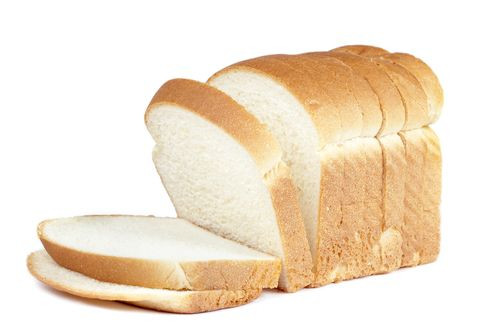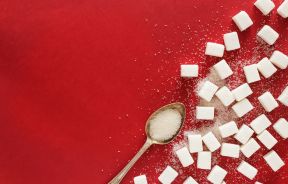Eating White Bread Puts You At A 40% Higher Risk Of Obesity: Study

If you’re trying to lose weight, you should cut white bread out of your diet, according to a new study.
Two or more daily servings of white bread may be the reason you're packing on the pounds, as it puts you at a 40 percent higher risk of becoming overweight and obese. The study monitored the eating habits and weight of 9,267 Spanish graduate students over five years. Students who consumed both whole grain and white bread had no higher increased risk of becoming obese. There was also no link between eating only whole grain bread and becoming overweight or obese.
But what’s wrong with white bread?
It may be because of the types of carbohydrates presented, Miguel Martinez-Gonzalez, a member of the research team, stated. “Essentially it is equivalent to a high consumption of sugar,” Martinez-Gonzalez stated. “The problem is similar to what we see with soft drinks, their sugars are rapidly transformed into fat an organism.”
“A sensible recommendation would be to switch to whole grain bread, especially for people who usually consume a lot of bread,” he added. One serving size of Wonder Bread’s White Bread contains two slices, 190 calories, 2 grams of fat, 37 grams of carbohydrates, and 3 grams of sugar. One serving size of Wonder Bread’s 100% Whole Grain Bread contains two slices, 160 calories, 2 grams of fat, 30 grams of carbohydrates, and 4 grams of sugar.
The new study was presented last Friday at the European Congress on Obesity in Bulgaria. The research doesn’t show a cause-and-effect relationship between eating white bread and weight gain, just an association. The study has yet to officially be published in a peer-reviewed medical journal. Until then, the study results presented at meetings should be considered preliminary.
The health benefits of white bread have been debated for quite some time. A 2012 study at the British Nutrition Foundation found most health alerts about eating white bread are myths. The researchers further went on to explain that white bread is an important source of nutrition with vital vitamins and minerals.
Source: Martinez-Gonzalez M, et al. European Congress on Obesity. 2014.



























